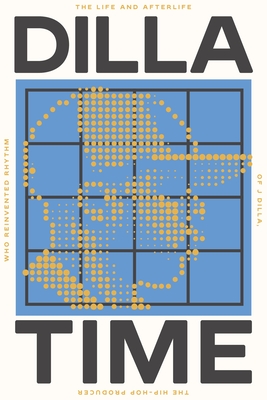“The public life of every political figure,” Kissinger said, “is a continual struggle to rescue an element of choice from the pressure of circumstance.
— The Inevitability of Tragedy by Barry Gewen (55%)
Arts grantmaker living in Austin, TX. Jazz, museums, pre-Kurtzman Star Trek, so forth and such as. Also in the fediverse at @5easypieces@social.coop.
This link opens in a pop-up window
“The public life of every political figure,” Kissinger said, “is a continual struggle to rescue an element of choice from the pressure of circumstance.
— The Inevitability of Tragedy by Barry Gewen (55%)
Ideals, morality, even truth, would only get in the way of a settlement, and fortunately Nixon was restricted by none of them. Besides, if things went wrong, he could always blame the Democrats for the war.
— The Inevitability of Tragedy by Barry Gewen (46%)
Throughout his career in the United States, Morgenthau never stopped trying to explain to Americans (who persistently had difficulty understanding the point) that “modern totalitarian regimes, fascist and Communist, have not been imposed by a tyrannical minority upon an unwilling population.” Rather, they “have come to power and maintained their rule with the support of populations willing to sacrifice individual freedom and self-government, actual or potential, for order and what they consider to be social justice.”
— The Inevitability of Tragedy by Barry Gewen (35%)
“The internet’s purpose is to ratify knowledge through the accumulation and manipulation of ever-expanding data,” he wrote, but in this way “information threatens to overwhelm wisdom,” leaving no room for the operation of human consciousness and its associated qualities of subjectivity, agency, responsibility, introspection, and freedom.
— The Inevitability of Tragedy by Barry Gewen (20%)
One lesson that Kissinger drew from the West’s trusting, optimistic, wait-and-see policy of appeasement (as we saw in his approach to Salvador Allende) is that “foreign policy builds on quicksand when it disregards actual power relationships and relies on prophecies of another’s intentions.”
— The Inevitability of Tragedy by Barry Gewen (11%)
The institutions of democracy had not prevented Hitler’s rise; they had facilitated it. Most American policymakers, then or later, had no way of responding to that fact, no way even of incorporating it into their conceptual apparatus, but it was a reality Kissinger could never ignore.
— The Inevitability of Tragedy by Barry Gewen (10%)
In contrast to so many Americans, Kissinger has lived without hope, without expectations, and certainly without confidence in either the workings of democracy or the inevitability of progress. Policy, he has argued, must start from that grim vantage point.
— The Inevitability of Tragedy by Barry Gewen (1%)

This narrative tells the story of seven women and one man at the heart of a sit-in protesting decreased enrollment …

Marc Cushman's biography of Star Trek® the original series (TOS) takes you back in time for the final season of …

The recent publication by New Directions of five Lispector novels revealed to legions of new readers her darkness and dazzle. …
Maybe it’s the obvious thing to say, but I wish this book had existed when I started my career in nonprofit technology. Maybe there wasn’t a lot here that was new to me, but there was a lot here that reinforced many lessons learned the hard way, and a lot that the next crop of nonprofit technologists can learn from. Highly recommended.

The classic account of ambient music, with a new foreword by Michel Faber.
David Toop's extraordinary work of sonic history …
Like the moon in Buddhism, a particle does not exist: it is the act of measuring that makes it a real object. What they were proposing was a ruthless rupture with tradition. Physics ought not to concern itself with reality, but rather with what we can say about reality, they said.
— When We Cease to Understand the World by Adrian Nathan West, Benjamín Labatut (90%)

Equal parts biography, musicology, and cultural history, Dilla Time chronicles the life and legacy of J Dilla, a musical genius …

With the death of her aunt, the narrator is left to sift through an apartment full of faded photographs, old …